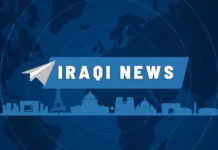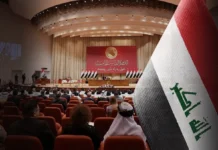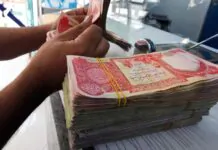Al-Nusairi Identifies The Challenges Of Iraqi Private Banks And Opportunities For Banking Reform
Expenses Economy News – Baghdad Iraqi private banks suffer from many challenges and obstacles to work, and they also face crises and wide risks due to
economic instability due to the challenges of instability in the financial and monetary system,
deficiencies in the investment environment, and
deficits in the balance of payments and the trade balance.
Iraq includes eight government banks, and the structure of the Iraqi private banking sector consists of 32 Islamic banks and 28 commercial banks.
Advisor to the Iraqi Association of Iraqi Private Banks, Samir Al-Nusairi, told Al-Iqtisad News,
“The number of private bank branches is approximately 500 branches inside and outside Iraq, which have expanded and developed technically in accordance with modern electronic banking systems.”
Al-Nusairi pointed out that the private banking sector in Iraq faces business challenges in addition to the above, most notably the US sanctions and restrictions imposed on 51% of the total private banking sector in Iraq and preventing 28 of its banks from using the US dollar in banking transactions, which affected their local and international activities and harmed the economy. National.
He explained that the most important obstacles facing banks currently are
technical, financial and administrative, especially in the
procedures, instructions and decisions of digital transformation,
which requires providing full support for this transformation process and the use of electronic payment tools in governmental, mixed and private institutions, and setting a time limit for the complete transformation from the use of paper cash to electronic payment..
He added that the private banking sector suffers from differentiation between it and the government banking sector, as government banks account for 87% of total deposits and 78% of total assets.
It also suffers from weak activity and low liquidity, deposits, revenues and profitability in most banks, especially the 32 banks that issued Penalties and restrictions against them, in addition to the decline in the shares of most banks in the trading market in the Iraqi Stock Exchange.
Al-Nusairi added that private banks also suffer from double taxation, as the tax department in the Kurdistan region of Iraq, for example, imposes on the branches of private banks in the region (the number of which exceeds 70 branches) to pay the annual tax, while these banks, in accordance with the applicable Federal Tax Authority law, pay the same tax centrally. In Baghdad.
Al-Nusairi stressed the need for the Iraqi Council of Ministers to resolve the issue in the region and put an end to double taxation, and for tax collection to be centralized according to the law and for the final audited accounts submitted to the General Authority for Taxes to be approved as a basis for tax accounting.
The advisor to the Iraqi Private Banks Association called for “implementing the seven decisions issued on 4/4/2024 in implementation of the directive of Prime Minister Muhammad Shiaa Al-Sudani regarding supporting our private banks, which confirms the government’s vision in its governmental approach to financial and banking reform, as well as activating and accelerating the implementation of the agreements made in the rounds of negotiations.” between the Central Bank and the US Treasury in Washington and Baghdad to lift US restrictions on the use of the US dollar.”
He explained, “The Prime Minister’s decisions in support of private banks laid out the executive procedures for comprehensive reform of the banking sector, which constitutes the basis and true beginning of successful economic reform.
These decisions included the following:
1- Preventing monopoly in banking services.
2- Activating the Central Bank’s financing initiatives.
3- Increasing cooperation between private banks and the Central Bank in discussing decision-making related to supporting and developing banking work.
4- Determining the contribution of foreign capital to Iraqi banks.
5- Participation of government institutions and financial funds with private banks and expansion by opening branches in countries
The other.
6- Government and Central Bank support for private banks in foreign institutions and banks.
7- Increasing reliance on private banks by the Iraqi state and activating the deposit of government deposits and government bank deposits with private banks.
Al-Nusairi stressed that implementing the decisions, which are practical applications to motivate private banks to develop their internal and external banking operations in a way that contributes to economic reform, pointing out
“the importance of the Central Bank accelerating procedures to rehabilitate and restructure these banks, as well as the necessity of the international auditing company completing its agreed-upon work in order to raise Limitations and restrictions imposed. He concluded his speech by saying:
“This file is certainly the focus of attention of the government, the Central Bank, the Association of Iraqi Private Banks, and the banking sector in general.” https://economy-news.net/content.php?id=47683
For current and reliable Iraqi news please visit: https://www.bondladyscorner.com/ Next







